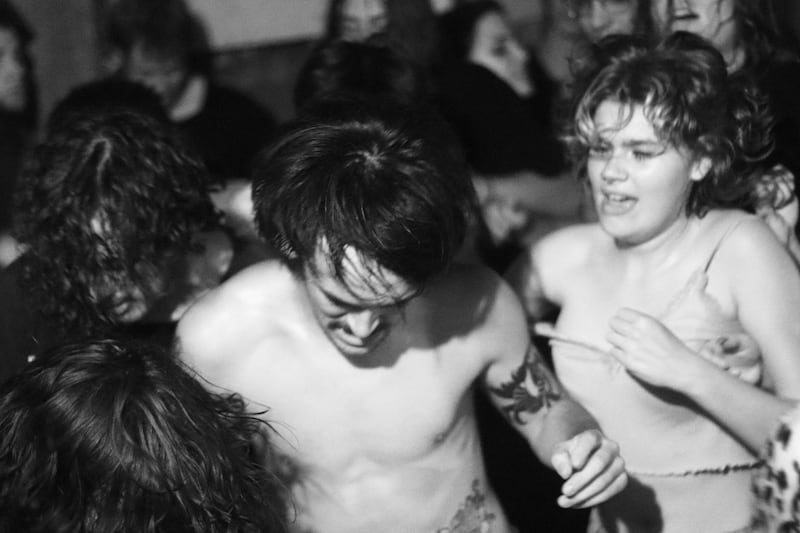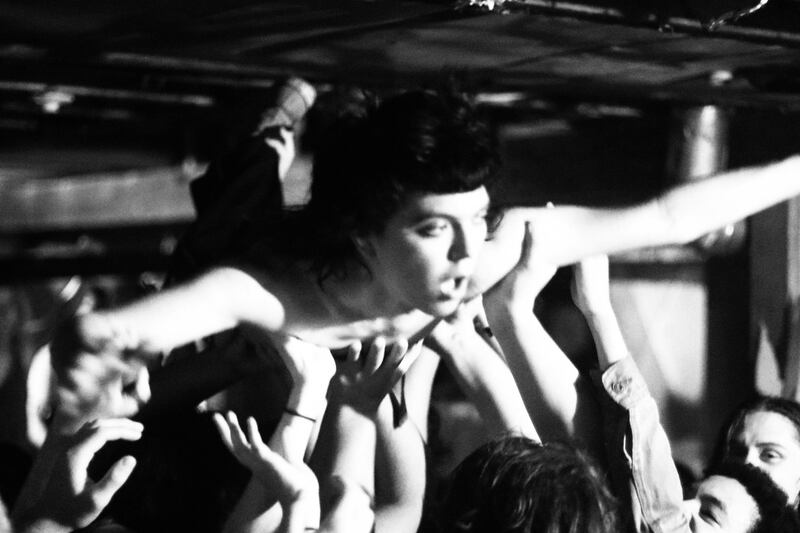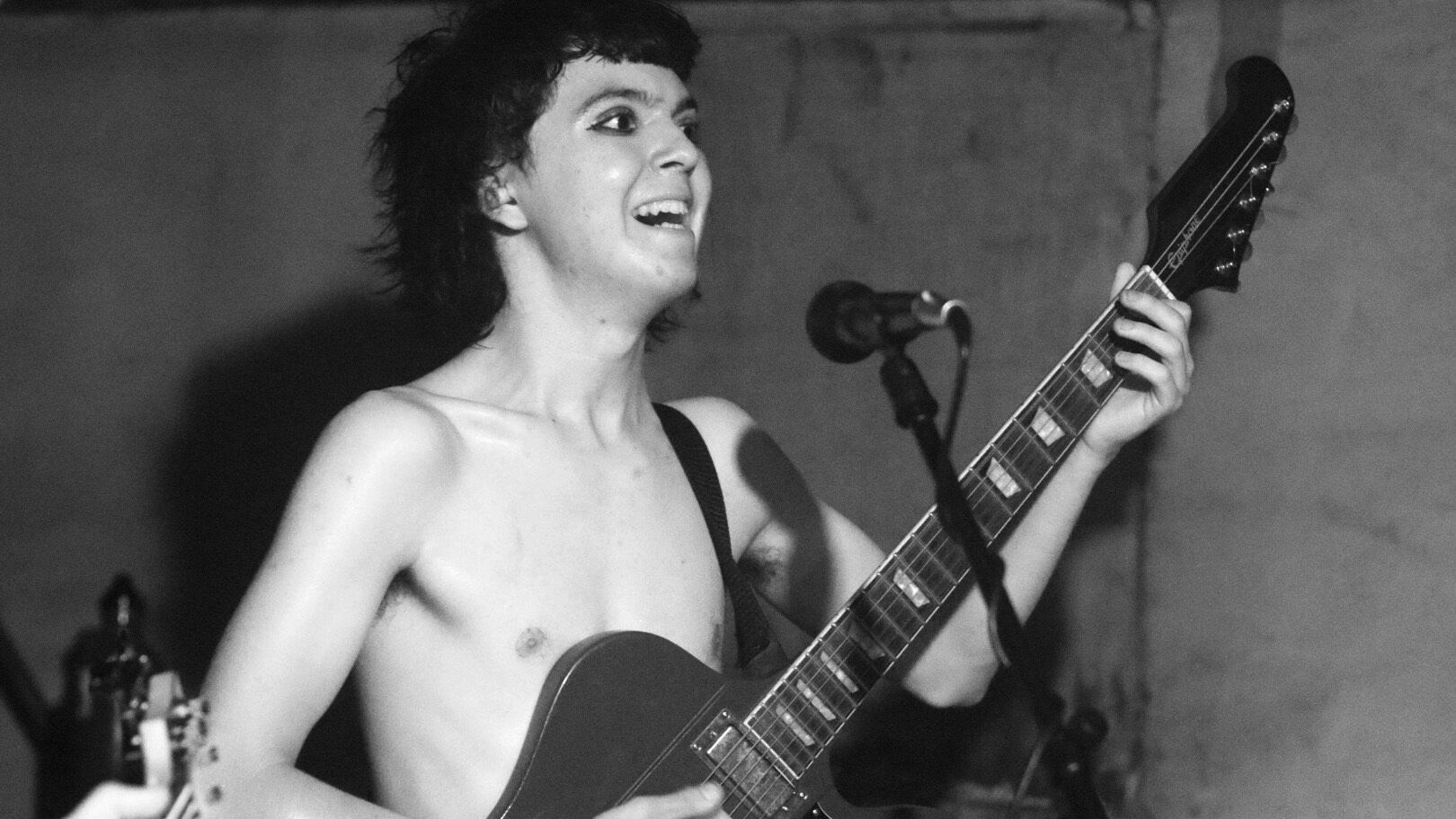It’s a precarious time for live music in Portland. In an attempt to combat the highly infectious COVID-19 Delta variant, production companies around town are taking steps to virus-proof their live events.
Venues and bars belonging to Portland’s newly established “Vaxx Coalition” are requiring proof of COVID-19 vaccination upon entry. Some spots, like Mississippi Studios and Revolution Hall, are going a step further, offering rapid tests at the door for patrons who cannot prove their vaccination status.
At first blush, house shows seem like one of the least safe places to experience live music right now—with their stuffy, sweaty basements, and secondhand smoke-filled backyards. But the inverse might actually be true.
Toward the beginning of the summer, when Portlanders started leaving their masks at home and a sense of normalcy temporarily swept the country, the underground stayed cautious. DIY shows advertising vaccination enforcement—promoted almost exclusively on Twitter and Instagram—started to crop up across the U.S., weeks before the issue entered the national discourse. The kids aren’t only alright; they’re often more responsible than adults, period.

“With bars, they’re trying to make money,” Zoe Tricoche explains, outside one such house show. “I’m not trying to make money. I can put these rules in place and I won’t lose anything. If somebody goes, ‘I’m never going to go to this house again because they enforced this,’ then they’re not gonna come to the house again. I literally do not care.”
Like Tricoche suggests, for “real” venues, the politics of vaccination enforcement are inextricable from the politics of making money. This puts promoters and venue owners in a terrible, lose-lose situation: If they don’t enforce proof of vaccination, they put their patrons’ safety in jeopardy and risk tarnishing their brand, but if they do enforce vaccination, they risk alienating the small, disproportionately vocal segment of their clientele who—for whatever reason—doesn’t want to get vaccinated.
These concerns don’t exactly apply to house shows, though. Tricoche asks for $5 at the door, but like most DIY shows, there’s a flexible NOTAFLOF (“no one turned away for lack of funds”) policy.
“It’s kind of just on principle right now,” Tricoche says. “It just makes sense.
[Some people] have this punk thing, where it’s like, fuck it, do whatever. I find peoples’ safety way more important. Being punk and being heavy metal or whatever is important to an extent, but honestly, I’m going to put shit in place and abide by those rules, because people are at risk. And no matter what, people are going to be at risk, but I can at least dampen it a little bit.”
Tricoche lives in this house. He’s also running the door and playing in one of the bands. He diligently checks everyone’s vaccination status—even an email confirming a vaccination appointment will suffice—and also enforces a sort of revolving capacity limit so there’s ample space for people to move around the basement. When people leave the basement in between bands’ sets, they’re essentially forsaking their spot.
It’s not a perfect system, but it does feel safer than the alternative—and it also means that people who showed up late will get to see at least some music, if they stick around long enough.
Tricoche and his housemates are also handing out free bottles of water to everyone in attendance. Which is great, because two songs into first band Twistur’s set, the basement is scorching.

In addition to being a paragon of post-lockdown DIY shows, tonight’s bill is a veritable who’s who of rising local talent. Twistur combines shoegaze with the leaner and more timeless aspects of nu-metal; Mt. Zena’s poppy post-hardcore falls somewhere between Cap’n Jazz and Wire; and Tricoche’s band, Kill Michael, is unrelenting, blown-out punk.
The big name on the bill, however—and “headliner”—is Rhododendron, a dizzyingly technical, self-identified “brutal prog” band whose members’ median age is 17. Guitarist and vocalist Ezra Chong—dressed in a stressed, counterfeit T-shirt with Sonic the Hedgehog on it, alongside the names “Harry Potter” and “Obama”—has both the look and disposition of a star. He’s soft-spoken and unfailingly courteous, but he also knows how good he is.
Rhododendron is among the handful of bands that took a global pandemic as a cue to speed up, not slow down. They released their debut album, Protozoan Battle Hymns, in May, and it’s one of the most compelling records to come from Portland’s heavy music scene in a long time.
COVID-19 decimated the live music ecosystem, but for some up-and-coming artists, there was a silver lining. The pandemic’s leveling of the status quo has led to a democratization of social power in the music industry, taking clout away from talent buyers, publicists, Twitter-verified critics, and miscellaneous gatekeepers, and, in many instances, putting it back in the hands of the artists themselves.
When a young band discovers they can accrue a fan base and sell records simply by making good music and being funny and engaging on Twitter or TikTok, it raises the question: Was the old model of relentless touring and fighting for press and opening slots at midtier venues a ripoff?
Rhododendron’s local ascent is a microcosm of this phenomenon, and Chong—a bit of a niche internet micro-celebrity himself—thinks it’s tied to something else: the wider acceptance of stranger, noncommercial music that maybe would have been passed over by tastemakers in a pre-pandemic world.
“I think [people looking for catharsis now] is a super big factor,” Chong says. “There’s definitely a renewed interest in heavier stuff.
“Before COVID, there was more of a focus on indie rock. It’s great to see indie bands, but it’s also cool to know there’s this place for really, really weird shit. As a whole, there are a lot of weirder bands starting to come up, and that’s super cool, ‘cause I’m into a lot of weird, cool stuff. That makes me sound so pretentious! On the record.”
